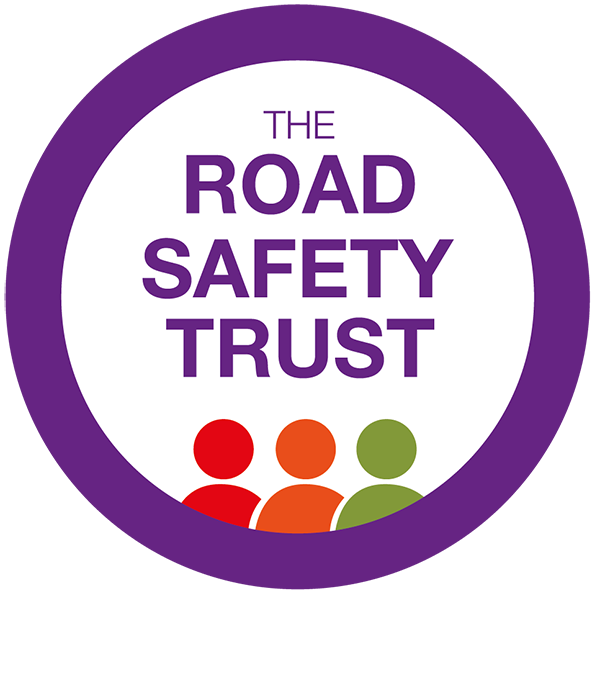Large projects
Here’s a portfolio giving details of the projects who have received funding from us in our large grants programme.
Search by category
By Road User or Year
Keyword search
University College London
Maximising learning from child road fatalities: evidence for action
This project will conduct a detailed analysis of the data held by the National Child Mortality Database, incorporating quantitative and qualitative approaches to uncover patterns, associations, and narratives related to child road fatalities, with the aim of developing a holistic understanding of the underlying risk factors for road fatalities in 0–17-year-olds in England, and the potential interventions needed for different groups to reduce risk of child and improve safety.
University Hospital Southampton
Data Sustains Life (DSL), linking healthcare and road safety data to evidence preventative strategies towards vision zero.
The DSL project aims to address the lack of joined-up data, at scale, that a) quantifies the harm done by road traffic collision; b) supports prioritisation of collision and injury prevention strategies at national, regional, and local level; c) identifies and mitigates injuries with long-term consequences and high costs for society.
Parliamentary Advisory Council for Transport Safety
Standardised Mature Driver Assessments to Improve Road Safety: An evaluation of implementation, delivery, and benefits across five English regions
In this project, PACTS, working with The Older Driver Task Force (ODTF), the Older Drivers Forum and Warwick University, will conduct a trial and evaluation of a standardised mature driver assessment delivered by trained ADIs in five areas of the country.
University of Leeds
Enhancing Novice Drivers' Safety: Innovative Training to Improve Hazard Anticipation Skills
This project aims to reduce the crash risk of young, novice drivers, by developing a training program to improve their ability to anticipate potential hazards on the road.
Loughborough University
Loughborough University, Transport Safety Research Group
Development of an effective screening test to identify individuals in the early stages of dementia who are unfit to drive.
Nottingham Trent University
Development and validation of sleep-related driving risk prediction tools
The SleepiEST project will address a critical gap in fatigue risk management by developing new and improved, publicly available on-line fatigue management tools.
University of East Anglia
INDICATE (Introduction of an oNline cognitive battery for fitness to Drive In mild Cognitive impAirmenT and dEmentia)
This project, carried out in partnership with Driving Mobility, aims to develop a feasible and reliable online battery of cognitive tests for people with MCI/dementia to determine their fitness to drive and incident/collision risks.
Lincolnshire Police
Disqualified driver innovation: improving road safety through electronic monitoring technology
The project aimed to develop effective technology that could, in due course, deter persistent disqualified drivers from reoffending using new electronic monitoring technology.
Keele University and Lincolnshire Police
How can digital evidence submissions from the public be used more effectively to reduce road offending and improve road safety?
Lincolnshire Police and Keele University received funding to explore how ‘dash cam’ and ‘head cam’ technology can be used to reduce road offending and improve road safety.
University College London (UCL)
Evaluating the role of telematics in reducing speed violations among drivers and riders in the delivery sector
The project explored the role of telematics in reducing speed violations amongst drivers and riders in the delivery sector and how this technology can be used as a risk management tool.
University of Sheffield
Promoting Intelligent Speed Assistance to reduce UK road traffic crashes
The University of Sheffield, in partnership with the University of Greenwich, received funding to promote Intelligent Speed Assistance as a technological solution that can reduce speed-related road traffic collisions.
Gloucestershire Police
Automatic Number Plate Recognition (ANPR) Capability
Gloucestershire Constabulary received funding from The Road Safety Trust to conduct research to understand and overcome limitations of current Automatic Number Plate Recognition (ANPR) technology.
The Floow Ltd
F2DR: Fit2Drive: Piloting new technology and processes to optimise fitness to drive assessments and improve safety
The Floow, a world leader in vehicle telemetry data capture and processing, has received funding to advance approaches for assessing older drivers’ fitness to drive.
Road Safety Foundation
Maximising the accessibility and impact of telematics speed data for enforcement, road safety engineering and research
Road Safety Foundation, working in partnership with tech company The Floow, made detailed telematics speed data available to stakeholders such as community speed watch, parish councils, road authorities, police, and researchers in the West Midlands.
PACTS (Parliamentary Advisory Council for Transport Safety)
Lower urban speed limits in Europe - what does the evidence show?
Lower urban speed limits are key to delivering zero road deaths and encouraging more walking and cycling.
Road Safety Foundation
Enhancing International Road Assessment Programme (iRAP) investment plans for vulnerable road users
This project provides local authorities with a specialist resource to help understand the risks to vulnerable road users in towns and cities.
University of the West of England
Design development of side road crossings
The aim of the UWE project was to provide a basis for better side road designs, so that risk for road users is reduced.
Are you using our research or resources?
If you use any of the research or resources from projects we have funded, we would welcome you letting us know.





















